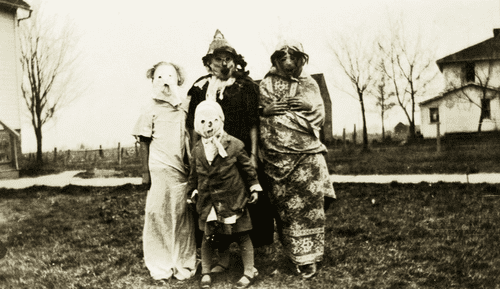Margaret Zeidler is one of the biggest Jane Jacobs fans you will meet. In fact, she attributes much of her success and innovation to the urbanist’s theories.
While Zeidler has studied much of Jacobs’ work, it was two sentences in the chapter “The Need for Aged Buildings” of The Death and Life of Great American Cities that inspired the creation of a company called Urbanspace and 401 Richmond, an urban community for artists and entrepreneurs.
“Old ideas can use new buildings, but new ideas need old buildings,” she said. “It was a waking up for me – you can’t solve everything with architecture and maybe you shouldn’t try to do that. These things that seem like they need to be fixed or torn down actually have a purpose in the economy to the city. That’s what 401 Richmond is all about”
Zeidler found and bought the industrial building complex in 1994 at a time when property prices were at an all time low. In 18 months, Zeidler led a team that transformed the warehouse into a vibrant workplace that housed a number of tenants with art and culture backgrounds, most hoping to kick start their careers in Toronto. The buildings have since been designated a heritage site.
401 Richmond now houses 140 tenants, all artists, entrepreneurs, or heads of social enterprises that are using spaces to launch their non-profits or startups. There are 12 galleries showcasing art of all kinds, a dance school, a roof garden, and Studio 123, an early learning centre. Each aspect of 401 Richmond works together to create a sustainable community and inspire ideas.
401 Richmond also has what’s called a career launcher studio, which is given to a graduating art student for a year to start their practice. All of these things together create a diverse community where artists and dreamers could thrive.
“I love it. It’s gorgeous,” Zeidler said of 401 Richmond. “It has almost 1000 windows in it – wood and metal, beautiful old fashioned windows. We are constantly doing renovations or adding new tenants that we think will be interesting. It’s a wonderful place to be and work. You run into all kinds of fabulous people.”
Zeidler expanded the idea through UrbanSpace by purchasing a new warehouse further down Spadina to be used as a co-working space for non-profits and startups. This led to a co-founded space called the Centre for Social Innovation, a shared workspace for over 170 nonprofits, social enterprises, activists, and artists.
“We talked to a bunch of young people working out of their basement,” Zeidler said. “They wanted to be in a community and talk to people and work physically in a space with people doing similar work.”
These urban communities, specifically 401 Richmond, is currently facing it’s own set of troubles. The space was hit with a property assessment that doubled the buildings’ tax bill. These same taxes are set to jump by another 21 per cent, making it difficult for Urban Space to continue and provide below-average rent costs for tenants — a staple of the entire 401 Richmond concept.
The issue is still being worked out, with the City of Toronto actively pushing for an exemption using a provision classified as “community benefit.”
“There are reasons why it’s useful to have inexpensive and mixed space within a core, especially when it’s rapidly gentrifying,” Zeidler said. “It’s about invention and new ideas.”
Zeidler will not be deterred. She spends as much of her free time at 401 Richmond as she can and remains active in the management of the community. “People are said to feel welcome. Diverse and happy place. We spend a ton of our lives working and it would be so nice to work on something you love but also in an environment you love.”
Zeidler is currently reading Becoming Jane Jacobs by Peter L. Laurence.
Do you enjoy these profiles? Subscribe to our e-newsletter to have them delivered right to your inbox!

